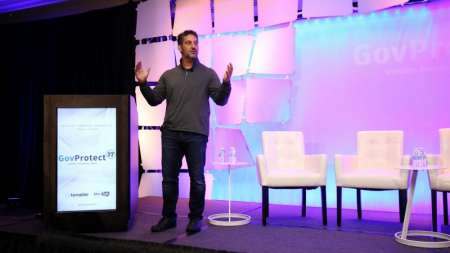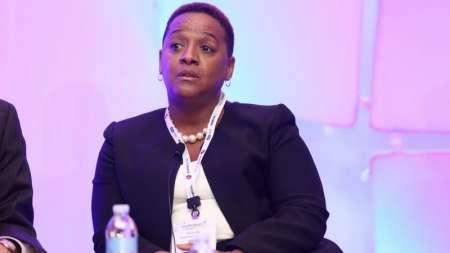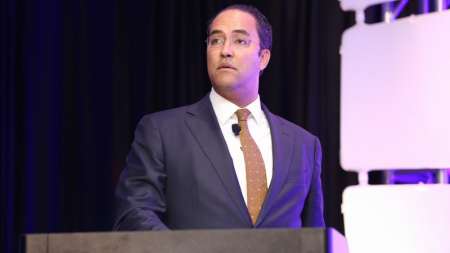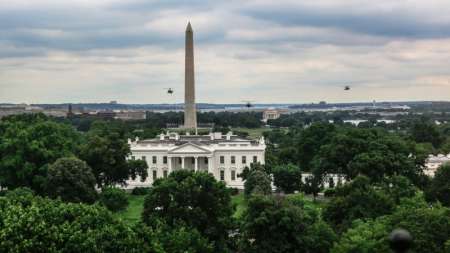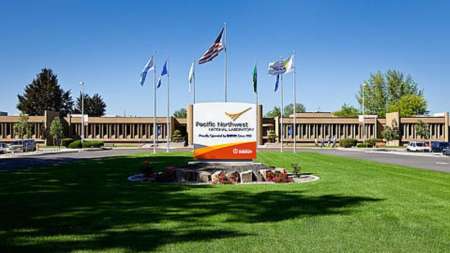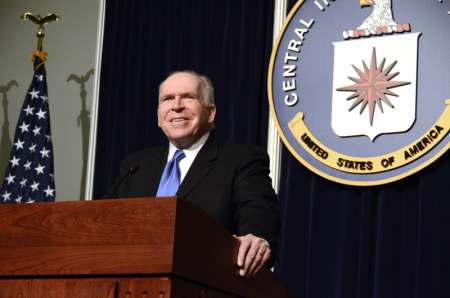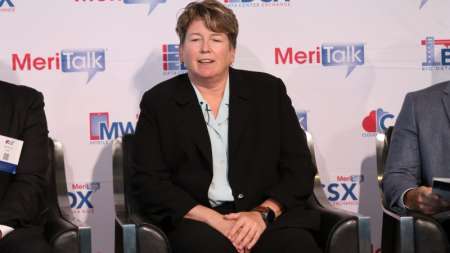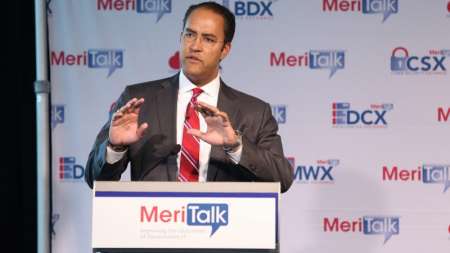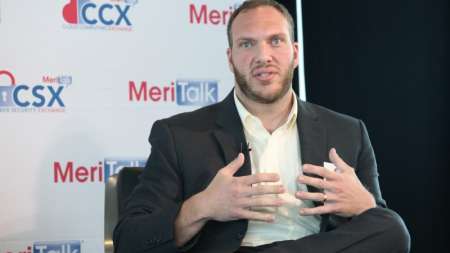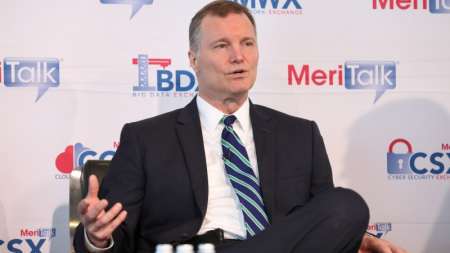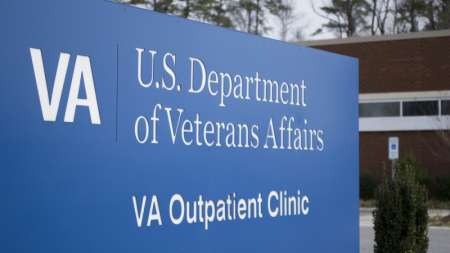Creative thinking is one solution for Federal agencies that defend against cyberattacks, according to Amit Yoran, chairman and CEO of Tenable. […]
The cybersecurity executive order, signed by President Donald Trump, could enable a shift in culture that will help entire agencies gain the cybersecurity knowledge that they need to be successful in their missions, according to agency CIOs. […]
To protect the nation’s digital infrastructure, Rep. Will Hurd, R-Texas, said it’s important to empower agency leadership and expand information sharing between the Federal government and other entities. […]
The Unisys 2017 Security Index found that public concern over Internet security has increased more than any other security concern since their 2014 survey. “Our biggest percentage increase was in viruses, malware, and hacking activities,” said Bill Searcy, Unisys vice president of global justice, law enforcement, and border security. […]
Federal IT executives are focused on the future. And, as agencies consider modernization strategies and options, most agree that cloud will be a foundational component. While cloud conversations have been ongoing for many years, widespread use of cloud models remains a challenge. There is still confusion about choices, migration paths, and which cloud offerings are available for different types of workload. Fortunately, the burgeoning relationship between government and industry partners helps agencies cut through this cloud confusion. […]
The personal details of nearly 200 million voters were left exposed online by data firm Deep Root Analytics, which was working on behalf of the Republican National Committee, according to UpGuard, which reported the exposure on June 19 and characterized it as “the largest known exposure of voter information in history.” […]
Eighteen technology company CEOs are expected to attend the White House Tech Summit on June 19 to talk about modernizing the government’s tech infrastructure and keeping its computers safe from cyberattacks. The technology leaders could benefit if the government moves to modernize with the help of their hardware, software, and cloud-computing services. […]
When moving to the cloud, government customers must think about the many moving parts that make up such a project including the resources they need to sustain their applications as well as the resources required to complete the actual migration. They also must consider the architecture, security policies, and model for operations and maintenance, as well as scope the size of the environment. […]
Over the past few years, the department of Energy’s Pacific Northwest National Laboratory has started using cloud computing services. Michael Giardinelli, a senior software engineer and technical team lead at PNNL, said the lab’s 16 counterparts across the nation have embarked on similar cloud journeys. “A lot of them are moving in same direction as us,” Giardinelli said. “One key thing is collaboration amongst labs, like when working through the power grid.” […]
Under tight budget restrictions and capital expenditure scrutiny, government agencies are finding it difficult to keep pace with mandates to modernize technology infrastructure. Technology Infrastructure as a Service (IaaS) offers a direct path to IT modernization, efficiency and control. This white paper details the driving forces behind the shift to IaaS as well as the benefits of moving to a consumption economics model for IT. It also details best practices, specific strategies and the five (5) key principles in contracting for IaaS as well as a glossary of IaaS related terms, so that government agencies can efficiently and effectively utilize what is fast becoming the preferred, proven method of contracting for and implementing IT capacity. […]
The Federal government currently lacks the empowered leadership necessary to address U.S. cyber vulnerabilities, according to former Federal experts testifying before the Senate Foreign Relations Committee. “For the entire apparatus, there currently isn’t an empowered, either an individual or an agency, to do what I think is necessary,” said Samantha Ravich, senior adviser for the Foundation for Defense of Democracies and former national security adviser for Vice President Dick Cheney. […]
Cloud infrastructure may be the safest place to store an agency’s most sensitive data, department of Justice officials said at an AWS Public Sector Summit. “I’d say it’s a pretty good place to put your crown jewels,” said Karl Mathias, chief information officer for the United States Marshals Service, adding that commercial clouds may end up being safer than an agency’s own data centers. […]
Former CIA Director John Brennan said that the Federal government should create an independent commission to regulate the digital domain. Brennan said that the commission should be made up of former government officials and private sector engineers to ensure that there are representatives of both backgrounds. […]
Amazon Web Services will open a new GovCloud Region in 2018 on the U.S. East Coast, the company announced at its annual Public Sector Summit on June 13. […]
Citizens shouldn’t rely only on the law to protect their data, according to Will Ackerly, co-founder and chief technology officer at Virtru and former cloud security architect at the National Security Agency. […]
Much of the government has a fear of taking technological risks, and it is the role of digital services teams to snap agency leadership out of that way of thinking, according to Digital Services panelists at the AWS Public Sector Summit on June 13. […]
After a spate of recent attacks, including the WannaCry and Dyn breaches, cybersecurity is a chief concern for companies and government agencies alike. Representatives from the private sector, Federal government, and Congress will convene at Tenable’s GovProtect event on June 21 to address cybersecurity issues. […]
Cyber AdAPT, a company that markets a platform that analyzes network traffic in real time for signs of malicious activity, was named the Gartner Cool Vendor for 2017 at the Gartner Security and Risk Management Summit on June 12. […]
Citing the WannaCry ransomware attacks, members of the House Energy and Commerce Committee brought up concerns with Health and Human Services officials that a similar attack could cause severe damage to U.S. health systems. […]
As cloud adoption matures across government, many agencies are realizing that this new IT model is much more than a technology decision. It’s a business decision that has had significant impacts on the way agencies buy, manage and deliver IT capabilities internally and to citizens. The challenge, however, is mapping the best path forward to move from legacy operations to a future state that supports faster, more reliable applications that power financial, workforce, security and other operations governmentwide. There is not a one-size-fits-all approach for moving every IT application to the cloud. […]
Government, industry, and the Hill got together for a collaborative powwow about government cloud progress, and specifically FedRAMP, the standardized cloud security certification, at the MeriTalk Cloud Computing Brainstorm on June 7 at the Newseum. The session reviewed progress to date and the path forward for the once-embattled GSA program–and revealed new transparency and important […]
Congress will be busy with future tech initiatives and members have high hopes for the potential of current programs, according to two congressmen who spoke June 7 at MeriTalk’s Cloud Computing Brainstorm. Congressional IT leaders Reps. Will Hurd, R-Texas, and Gerry Connolly, D-Va., talked about the future of major IT initiatives such as FedRAMP, the Modernizing Government Technology (MGT) Act, FITARA, and executive leadership, offering insight into the shape of IT developments in the coming months. […]
Josh Ziman, technology product manager within the Department of Homeland Security’s Office of the Chief Technology Officer, said agencies need to evaluate their biggest constraints before big efforts. He and his team addressed the question of how much space was in their data centers by automating their records system. […]
Government agencies are entering the race for the Internet of Things, while keeping security and privacy in mind. “When you think about the Internet of Things, we’re going to be in a race,” said Greg Capella, deputy director of the National Technical Information Service for the Department of Commerce, at MeriTalk’s Cloud Computing Brainstorm on […]
In order to improve the Federal acquisitions process, agencies need to seek out more teamwork with the private sector and with each other, according to Tim Cooke, president and CEO of ASI Government. […]
Darron Makrokanis, vice president of Federal for Tenable Network Security, said the cybersecurity executive order’s time frames are a “bit aggressive,” but the emphasis on cybersecurity is a step in the right direction. Makrokanis will be speaking at Tenable’s GovProtect discussion on June 21. […]
Veterans Affairs Secretary David Shulkin announced that his agency plans to move its medical records to the same electronic system currently used by the Department of Defense. […]
A publicly exposed repository of sensitive military data related to the National Geospatial-Intelligence Agency was discovered by Upguard’s Cyber Risk Analyst Chris Vickery, the company announced on May 31. […]
Government officials predict that though getting all Federal agencies to comply with the recent Cybersecurity Executive Order and the Modernizing Government Technology (MGT) bill will be difficult, the outcomes will be very beneficial for government. […]
Machine learning and artificial intelligence are needed to bridge the gap between the volume of government intelligence data and the number of people capable of analyzing it, according to Jason Matheny, director of the Intelligence Advanced Research Project Activity (IARPA). […]

